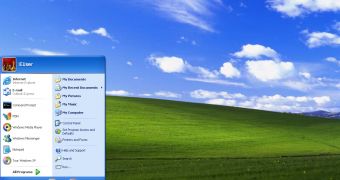Windows XP support will soon come to an end and everybody expects those still running the aging operating system to pick a new platform in the next couple of months, just in time for the April 8 retirement date.
Windows 7 is very likely to remain the number one destination for all Windows XP users since many are not yet ready to move to Windows 8.1, Andrew Hertenstein, manager of Microsoft Data Center and Azure Professional Services at En Pointe Technologies, explained in an interview with CRN.
“I have not talked to a single organisation yet that's 100 percent committed to Windows 8,” Hertenstein revealed.
What’s more interesting, Hertenstein says, is that mobile platforms are becoming serious alternatives for Windows XP. This is the case of Android, he added, but Windows’ luck for the time being is that this particular platform is optimized for the touch and is yet to reach the desktop until now.
“Businesses just aren't ready for a new kind of interface like that,” Hertenstein said. “In fact, that's the only reason we see resistance from clients for Windows 8 on desktops. It's an OS that's built for touch, but they don't want a touch-screen interface on their desktops.”
Windows XP is currently installed on 28 percent of computers worldwide, even though its demise will take place in approximately two months.
The risks of staying on Windows XP beyond this date, Microsoft says, are enormous, especially because hackers would attempt to exploit every single vulnerability found in the operating system. This means that computers still running XP would become an open doors for hackers, the company added.
“If you continue to use Windows XP after support ends, your computer will still work but it might become more vulnerable to security risks and viruses. Also, as more software and hardware manufacturers continue to optimize for more recent versions of Windows, you can expect to encounter greater numbers of apps and devices that do not work with Windows XP,” Redmond noted.

 14 DAY TRIAL //
14 DAY TRIAL //